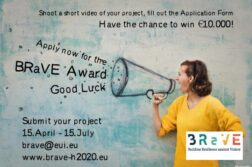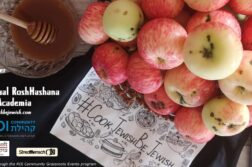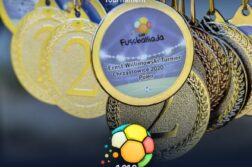Regional Representation of European Commission in Wroclaw and Cukunft Jewish Association invited distingueshed guests to join them in a debate “The View on multicultural richness of Europe: Breslauers and Wroclawians” that took place on Wednesday 26.10.2016 at 4:00 p.m. – Dom Europy (House of Europe) at 10 Widok Street in Wroclaw.
The meeting was an excellent opportunity to talk about the multicultural richness of Europe and Wroclaw as well as contribution of immigrants to the culture of the host countries. The starting point for the debate was Wroclaw, the place of the multicultural past and variety of traditions.
Speakers that took part in the debate:
Olga Chrebor – a president of the Kaleidoscope of Cultures Foundation,
Victoria Fuchs – a daughter of a painter Stefanie Steinberg, a descendant of the famous Apt family of Breslau (USA), was born in California, USA to parents who fled Germany because of the violence toward Jewish citizens of Germany in the 1930’s. She grew up very aware of this flight, and of her parents’ many friends whose arms bore the tattoos of numbers burned onto their arms in Auschwitz and other concentration camps. At university, she studied psychology in an attempt to understand the causes of this inhumanity toward other humans. She has a Bachelor of Arts degree in Psychology from San Francisco State University, and a Master of Arts degree in Education from the University of Saint Joseph in West Hartford, Connecticut. At the root of Judaism is the call for each of us to work to make a better world. With that in mind, she ultimately became a school teacher, and taught for many years, both working within the stated curriculum and teaching about fairness and justice, and that prejudice of any kind has no place in our lives. She and her husband, Rabbi Stephen Fuchs, have three adult children and five beloved grandchildren. After retirement five years ago, she has been privileged to tour, with her husband, many Jewish communities around the world. In the last two years, this volunteer work has become centralized to the communities of Northern Germany and expanded to include groups of people who are not Jewish. There she has worked with students in Gymnasium helping them to learn about the effects of the Nazi period in a very personal way, based on her mother’s life both before she left Germany in her early teens, her two years in limbo before arriving in the United States just after her 17th birthday, and her adjustment to American life.
Stephen Fuchs -Rabbi Stephen Lewis Fuchs – former President of the World Union of Progressive Judaism, an author of numerous books in English and Russian on modern approach to Judaism, i.e. ‘Torah Highlights,’ ‘What’s in it for me?,’ ‘Что мне это дает?’ (USA) was a distingueshed guest of Cukunft Jewish Association‘s debate and exhibition – Zukunft:Cukunft-Jews from Breslau, Jews from Wroclaw.
Ursula Sieg –a pastor of the Evangelical Lutheran Church (Northern Germany),
Rafal Szyndlauer – a political analyst, European Commission, Regional Representation, Wroclaw.
As an introduction to the debate, Wolfgang Henke – an author of German edition of Stefanie Steinberg’s exhibition and Aleksandra Wilczura (President of Cukunft) spoke about the idea for an educational project in Holstein and its impact as well as exhibitions in Germany and Poland.
The debate was moderated by Dr Marcin Starnawski (Cukunft, University of Lower Silesia), a well-known Polish researcher and scholar, lecturer of sociology and critical pedagogical theory, PhD (University of Lower Silesia), MA in Hebrew and Jewish Studies (University of Oxford), MA in sociology (University of Wroclaw), author and co-author of numerous reports, books, translator of Eric Hobsbawm’s books into Polish.
The debate was combined with an exhibition “Zukunft: Cukunft – Jews from Breslau, Jews of Wroclaw” (26.10.2016-14.11.2016 House of Europe and 14.11.2016-29.12.2016 Marek Edelman Dialogue Centre in Łódź) prepared by the Cukunft Jewish Association.
“Zukunft: Cukunft – Jews from Breslau, Jews of Wroclaw” is an exhibition about the secular life of German and Polish Jews associated with Breslau/Wroclaw, told through the biographies of individuals – Stefanie Steinberg, a German Jewish girl forced to emigrate from Wroclaw by the Nazis, profiles of prominent figures of Jewish origin-related to Breslauand Wroclaw and the history of secular Jewish community in Lower Silesia, post-war Jewishmigrants who came to Wroclaw from Poland or the Soviet Union after 1945.
The debate was simultaneously translated into Polish and English, meaning that the speakers, moderator and the public (that were invited to ask questions in the second half of the meeting) could use any of these languages and would be given headphones.
PHOTOS:























